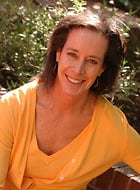 It's tough being rich. Wealth coach, financial adviser, and author of Living Richly (2010), Myra Salzer talks about the down and dirty world of trust funds and advises how the rich can best avoid inherited wealth catastrophes and difficult emotional issues.
It's tough being rich. Wealth coach, financial adviser, and author of Living Richly (2010), Myra Salzer talks about the down and dirty world of trust funds and advises how the rich can best avoid inherited wealth catastrophes and difficult emotional issues.
Salzer has been named one of Worth Magazine's top financial planners and has renown as a so-dubbed "inheritor's advocate. Her approach to her consultancy may seem counter-intuitive given that she focus on the emotional baggage weighing on inheritors when left money. Self-esteem, she argues, stands as the central problem with trust fund babies who have difficulty aligning self-worth with net worth. That these blue bloods have not earned their wealth but have fallen into it by sheer virtue of having been born to the right family takes its toll. This is the lucky sperm conundrum.
In addition to penning The Inheritors Sherpa (2005), she is also the founder of The Wealth Conservancy, a Boulder-based wealth management company, and a co-founder of the software company Executors Resource, which produces EstateLogic, a major online estate and legacy organizational tool.
Salzer answers our questions below:
GofG: The philosophy inherent in the American Dream has hinged on a pull-yourself-up-by-your boot-straps mentality as opposed to, say, the primogeniture philosophy that has informed European legacy. Do you think those made wealthy through trust funds and the like are robbed of the self-worth-through-self-advancement mentality?
MS: Yes, and the problem is amplified, because they get no respect and they have a very tough act to follow. It's hard to feel good about yourself when others don't and you are constantly compared to a financially successful individual.
GofG: How do you get the fabulously wealthy to maximize their potential and self-value?
MS: Start by building self-esteem. Exercises that amplify their accomplishments are good starts. We work on confidence with exercises that develop goals and purpose. We at The Wealth Conservancy are wealth coaches and we hold our clients accountable. Since they don't have a boss (and maybe never did), there is no one other than us who regularly hold them accountable. This may sound harsh, but it is very rewarding, actually.
GofG: Do you find a disparity in personality or happiness between self-made wealthy people and your inherited-wealth clients?
MS: Since we don't work with wealth creators, I am a not in a position to assess that. My guess is that the wealth creators have a much healthier relationship with their money because it was acquired as a result of their own effort. Most of our clients acquired their wealth because someone died or they reached a certain age and their trust terminated.
GofG: What's the biggest familial gripe you find when a patriarch or matriarch leaves a last will and testament?
MS:Actually, since I work with clients who have already inherited their assets, I start with them after the gripes have come and gone, at least with regard to the money. Therefore, typically, the parents' or grandparents' estates have usually been settled. It's when there is no will that the problems usually occur. I know of a multi-multi-million dollar estate whose primary asset was land and the parent died without a will, thus leaving single piece of property to all five children. They had very different opinions of how the property should be managed, developed, farmed, mined, and enjoyed. There were several lawsuits and fights. Some of the siblings no longer speak to each other. Nobody lives on the property because they can't agree to share the cost of a caretaker, and all the cash from the estate was used to pay estate taxes. They can't even agree to let one of the siblings stay on the property and maintain it without paying rent to the others. So it is getting run down, losing value, costing money and who knows what will happen to it. It's a mess. The lesson to be learned is to be clear with your intent via a well written will.
GofG: What's a faux-pas the rich should avoid?
MS: Making assumptions about the judgments people of lesser means have toward them.
GofG: Do you find ex-wives and widowed second wives to be a particularly combative set in the estate planning realm?
MS: Ex-spouses are usually out of the picture and have their settlement. Second spouses can and do often create challenges, especially if there are children from both marriages or when the children are close to the same age as the second spouse. Clarity of purpose and intent are critical if an estate holder wants to minimize conflicts after death.
GofG: What about New York and the Hamptons is particularly unique in terms of estate planning?
MS: High estate tax rates make it seductive to take full advantage of the unlimited marital deduction (possibly at the expense of the children).
[Image via The Wealth Conservancy]


.jpg)
.jpg)



.jpg)
.jpg)
.jpg)




.jpg)